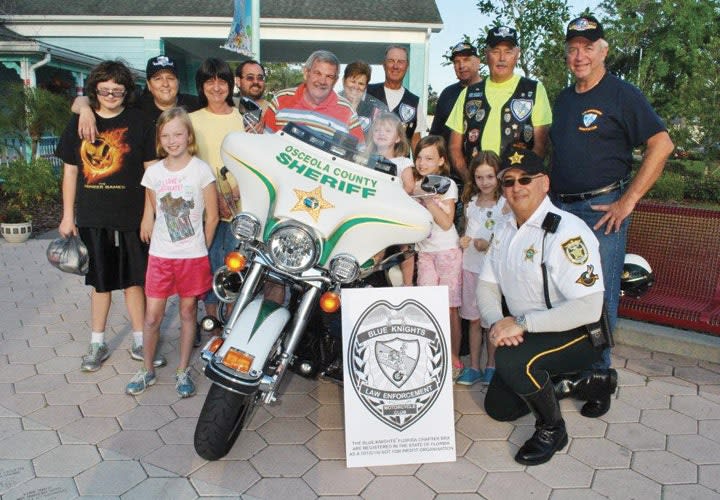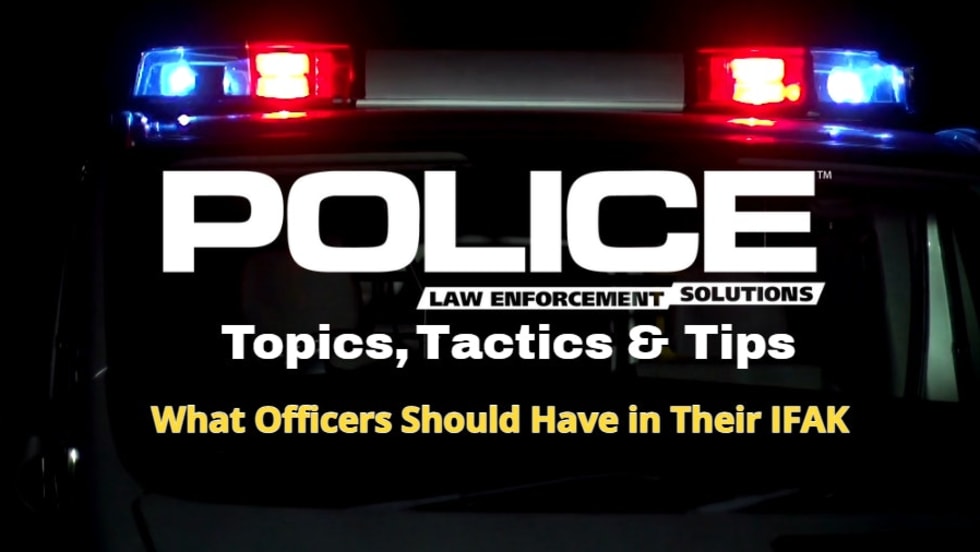There is an old saying that says in order to receive, you must first give. Giving back to the community is critical if you want its help. The key to getting the community to help you revolves around your getting involved with the community.
As law enforcement officers, we expect a great deal from the communities in which we patrol. For example, we ask for community members' assistance when looking for missing persons, working cold cases, calling in suspicious incidents, or even when we need emergency backup. And yet, what do we do to cultivate that assistance? There is an old saying that says in order to receive, you must first give. Giving back to the community is critical if you want its help.
The key to getting the community to help you revolves around your getting involved with the community. It's not enough to just work in the community; you have to be part of it. There are many ways to get involved and help foster a better working relationship.
It's as Simple as Saying Hello
This is a day and age in which everyone relies on technology for personal interactions. No one talks to each other anymore unless absolutely necessary. Break the trend and while on patrol, stop and say hello every once in a while.
For example, if you see elderly people taking out the trash, roll down your window and say, "Hi." Ask how they are doing. Use this time to ask them if they have any concerns about their neighborhood.
There have been many times during my career when I have received information that led to an arrest by just engaging someone in conversation. You can't get proactive information if all you ever do is talk to people when you're just out on calls. By then you've missed the opportunity.
Also, don't forget the importance of making contact with businesses on your beat. Walk through each, introduce yourself to the manager, and tell him or her that the store is on your patrol. The relationship you build with that person will either help you or hurt you if you ever have a call there.
One of the critical components to our job is time, so you must have a sense of urgency. Your taking time to talk with someone now can make a huge difference later. It can mean getting a surveillance tape right then because the manager is willing to meet you at 3 in the morning or in his blowing you off until he feels like getting it for you the next day.
Become a Guest Speaker
Make an effort to volunteer as a speaker at local organizations, clubs, and schools. There is a great deal going on today that leaves citizens with questions or uneasy feelings. Many of those questions and feelings can be cleared up in a short impromptu presentation followed by a question-and-answer period. Can you think of a better person for community members to hear talk about crime prevention than the person who is the one fighting crime in their area?
Crime or Business Watch meetings are a great place to start. Stop by and visit one in your patrol area. Introduce yourself, hand out your business card, and tell them you care about the community and the people who live there. Help put a face to the services your agency provides while putting their minds at ease about calling in information or asking questions.
It's not just about you reading crime stats at a meeting and simply telling the group what happened in the neighborhood last month. It's about being able to deal with real-life concerns and reaching for real-life answers to those concerns. You need to instill a sense of partnership within the community.
Another good way to interact with people on your beat is through community service organizations like the Kiwanis Club, Rotary Club, Lions Club, Boys and Girls Clubs, or any advocacy group. Call them up and see if there is a topic of interest they need some help with. These clubs usually hold monthly meetings and are eager to find new guest speakers. It breaks things up for them and gives you an opportunity to build a relationship with the members.
Schools are another great place to make a positive impression. Colleges and universities may be interested, but public or private schools that teach grades K‒12 are much more likely to welcome you onto campus. There isn't a week that goes by without my office being asked to provide an officer for a static display or to come in and speak to a class about a law enforcement topic. Even if your local school has a school resource officer, I'm sure they'd appreciate the help and the kids would enjoy another point of view.
Volunteer
One of the best ways to get involved in the community is to volunteer or join a service organization. I know of many officers who get involved this way. I have volunteered many times in the past myself, including working with Habitat for Humanity, helping in local meal centers, and donating time to Relay for Life. In addition to volunteering, I belong to a service organization.
I am a member of the Blue Knights International Law Enforcement Motorcycle Club (Chapter Fl 29). We do a great deal of work in and around our community. For example, we help our local police academy by providing a $500 scholarship per class, we work with local charities, and we sponsor a law ride to raise monies for officers injured or killed in the line of duty within our own county.
One of the charities we work with is Give Kids the World (GKTW). GKTW helps children with terminal illnesses fulfill one of their wishes. Kids' wishes often include coming down to the Kissimmee/Orlando area of Florida and visiting Walt Disney World, Universal Studios, or Sea World. In fulfilling one such wish, I recently met a young girl named Harlie. Her wish was arranged by two of our chapter members, John and Janine Russell, who regularly volunteer at GKTW, and the child's aunt, who is a retired law enforcement officer.
Harlie was born a crack baby and as you can expect has many complications as a result. She was one of four children the family adopted after having raised four children of their own. One part of Harlie's dream was to meet with law enforcement officers who rode motorcycles. Obviously, that was right up our alley.
Our chapter assembled a small group of Blue Knights to participate. I went along in uniform and rode my agency's motorcycle. We assembled our static display and lined up our bikes in the middle of GKTW and met with Harlie and her family. During our visit we made Harlie an honorary Blue Knight complete with badge and pin and issued her a small inscribed flashlight. I can tell you that spending time with Harlie changed my life forever and left a positive impression about law enforcement with all those involved.
It Makes a Difference
I am sure that some of you reading this are shaking your head and saying, "No way. I'm already too busy." I will fire back by telling you that you can never be too busy to get involved. You can put yourself out there as little or as much as you want, but should at least consider doing something.
Most of the information you receive in order to solve a case comes from the citizens. You need to foster a positive relationship with them. I understand you can't meet with everyone personally, but a simple positive interaction spreads as people talk to their friends, family, and work associates. You have to build a trust factor if you expect them to help you. No one gets anything for free, and for this to work all it will cost you is time.
Final Thoughts
I have always made it a point in my career to interact with the community in which I worked. I have had citizens help me (without being asked) in performing traffic control, helping me secure a suspect after a foot pursuit, and many things in between. You need to understand that citizens don't have to help you and no law can make them. But, if you work to build relationships and make yourself known in the community, it will help you in the long run.
As for Harlie, I check up on her via her mom's Facebook page. I don't stay long but I do love looking at the posts and reading some of the comments. I learned the other day that Harlie's mom asked the little girl if she could use her Blue Knights flashlight. Harlie told her mom she couldn't let her do that because she wasn't a Blue Knight. Sorry, mom, but Harlie is an honorary member and it does say "Blue Knights" on it…
Amaury Murgado is a special operations lieutenant with the Osceola County (Fla.) Sheriff's Office. He is a retired master sergeant from the Army Reserve, has over 25 years of law enforcement experience, and has been a lifelong student of martial arts.












